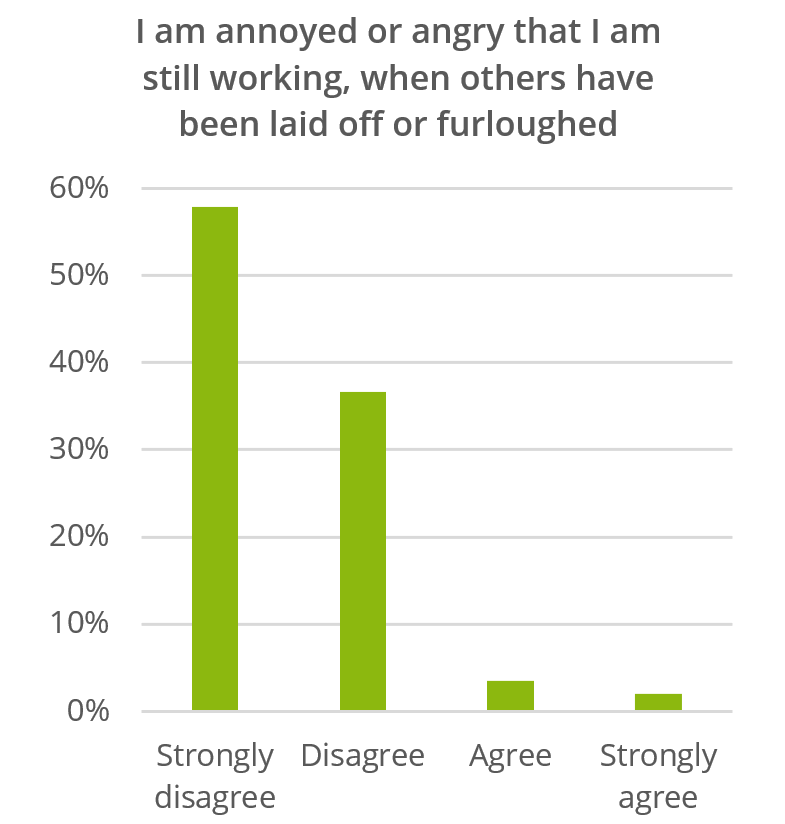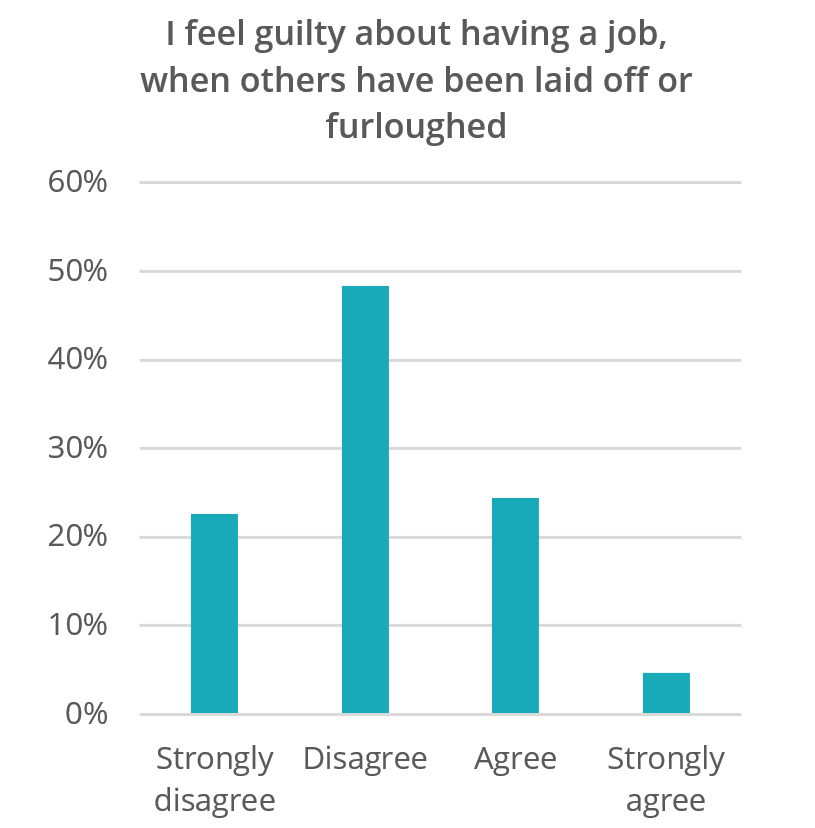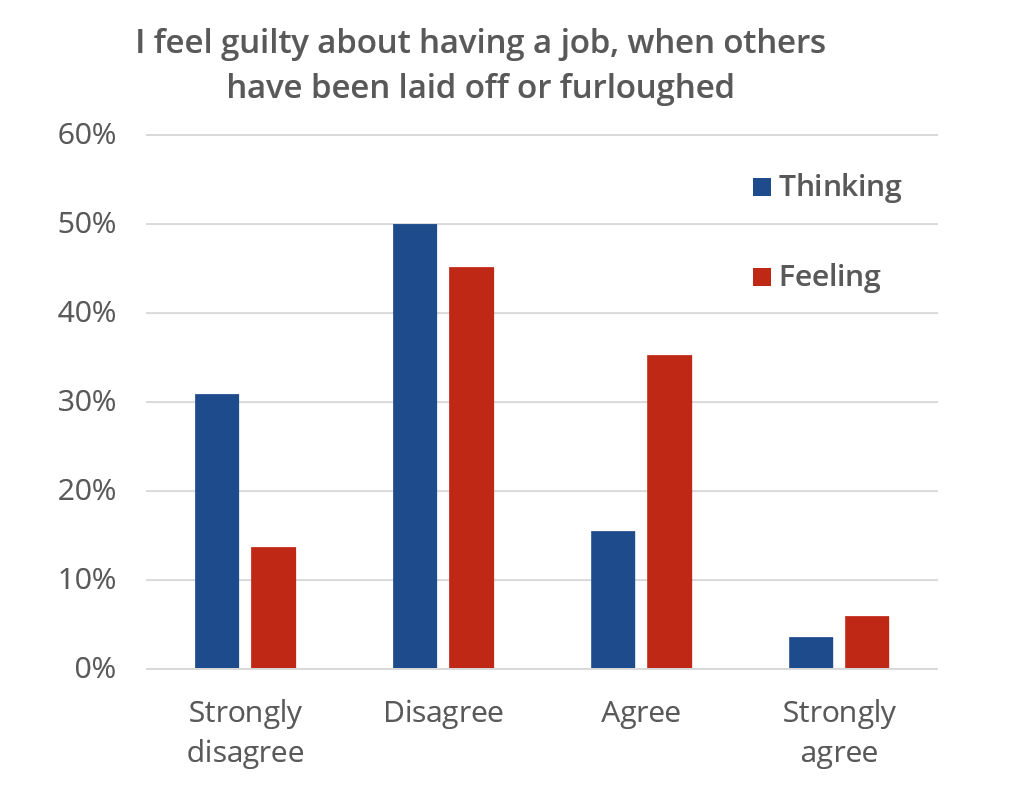Survivor guilt and the aftermath of lockdown
John Hackston, Head of Thought Leadership, The Myers-Briggs Company
Survivor guilt, or survivor syndrome, is a symptom of post-traumatic stress disorder (PTSD). When a person survives a traumatic event, but others do not, they often feel guilty. At some level, they believe that they have done something wrong and that they did not deserve to survive when others perished. But survivor guilt is also often seen in the workplace when workers are made redundant or laid off, with those who remain feeling guilty that they still have a job. This is one of the reasons why the employees who survive downsizing rarely perform as well as organizations expect them to.
The lockdown caused by the Covid-19 virus has forced most organizations into a place that has many similarities with downsizing. Many employees have been furloughed or laid off, with those who remain often asked to carry out additional work. In these conditions, we wondered whether survivors would feel guilty, or annoyed that they remained at work – and whether these feelings related to their personality. We have been carrying out research to find out. Data collection is ongoing, but the preliminary results are fascinating.
Overall, most of those still working felt neither guilty nor annoyed to be in this position, though people were rather more likely to feel guilty than annoyed.
There was however a clear difference in survivor guilt when we looked at personality, as assessed by the Thinking-Feeling dimension of the Myers-Briggs Type Indicator® (MBTI®) framework. People with a Thinking preference prefer to make decisions based on objective logic, whereas those with a Feeling preference prefer to make decisions based on values and on how those decisions will affect people. We found that respondents with a Feeling personality preference were significantly more likely to experience guilt than those with a Thinking preference. 41% of those with a Feeling preference agreed or strongly agreed with the statement, but only 19% of those with a Thinking preference.
These results show that people with a Feeling preference are more likely to be suffering from survivor guilt in the current situation. Levels of guilt are likely to increase as lockdown and furloughing continue and redundancies become more likely; we are already seeing hints of this in the data. And when and if things return to something approximating normality, the accumulated guilt is unlikely to suddenly vanish, leading to longer-term issues well after lockdown is over.
The presence of survivor guilt is just one more reason why it is important for managers to increase their self-awareness and their understanding of other people. This is especially relevant as managers and executives are much more likely to have a Thinking than a Feeling personality preference and may therefore be less prone to survivor guilt themselves.
Tools like the MBTI assessment can give managers a useful framework to better understand how they differ from others and how their employees may not see the world in the same way that they do. For example, staff with a Feeling preference are likely to appreciate knowing that those who have been laid off or furloughed have been treated well and, where possible, according to their needs. They will also want to be reassured that even if they had been prepared to make sacrifices themselves, this would not have changed the outcome. They are unlikely to respond well to being congratulated on being lucky in remaining.
If you would like to contribute to our ongoing research into survivor guilt and how Covid-19 is affecting the workforce, please go to https://www.surveymonkey.co.uk/r/MBTIC19 and complete the short survey. It is entirely anonymous and should take you less than 10 minutes to complete.


